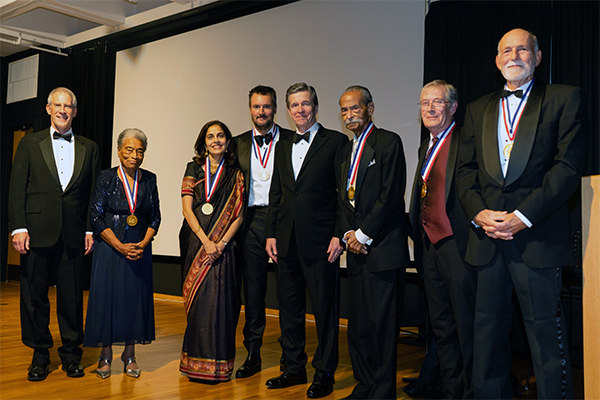Gene Therapy for Heart Attacks in Mice Just Got More Precise
A team of Duke scientists studying how other animals regrow damaged tissues has made an important step toward controlling at least one part of the regenerative machinery with precision.
Study Evaluates Biomarker to Help Curb Unnecessary Antibiotic Use
Testing for procalcitonin, a blood biomarker that is increased in people with a bacterial infection, could help physicians more quickly and effectively determine whether patients need antibiotics.
Aravind Asokan to Lead Partnership with Danaher Corporation to Accelerate Gene Therapy Breakthroughs
Aravind Asokan will lead a new strategic partnership with Danaher Corporation to form the first Danaher Beacon for Gene Therapy Innovation, a new initiative designed to access breakthrough science to create technologies and applications that will improve human health.
Listening in on the Conversations of Fat Cells
Your body is in constant dialogue with its own fat, and fat talks a lot.
Family History, Gene Variants Put Black Men at Risk for Early Prostate Cancer
A family history of cancer and genetic variants that might be inherited appear to be important risk factors for Black men diagnosed with early-onset prostate cancer
Human Evolution Wasn't Just the Sheet Music, But How it was Played
A team of Duke researchers has identified a group of human DNA sequences driving changes in brain development, digestion and immunity that seem to have evolved rapidly after our family line split from that of the chimpanzees, but before we split with the Neanderthals.
Understanding the developmental gene regulatory networks of sea urchins: A Q&A with Phillip Davidson
A new publication from the lab of Greg Wray, PhD, professor of biology, explores the developmental gene regulatory networks of sea urchins
A mother’s cancer helps inspire the launch of a new tool to fight cancer at Durham biotech Ten63
A deeply emotional experience with cancer and a fortunate discovery of the work being conducted by Bruce Donald, PhD, helped Ten63 Therapeutics began to take shape.
Svati Shah Receives Genomic and Precision Medicine Mentoring Award
Svati Shah received the Genomic and Precision Medicine Mentoring Award from the American Heart Association (AHA) at the AHA’s Scientific Sessions in Chicago, Illinois, on November 5.
Priya Kishnani Receives 2022 North Carolina Award for Science
Priya Kishnani received one of North Carolina’s highest civilian honors, the North Carolina Award, on November 15 for her contributions to science.









